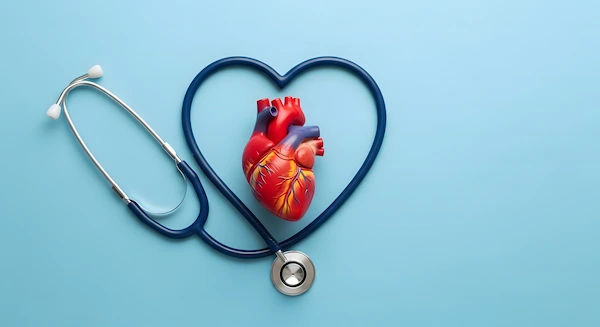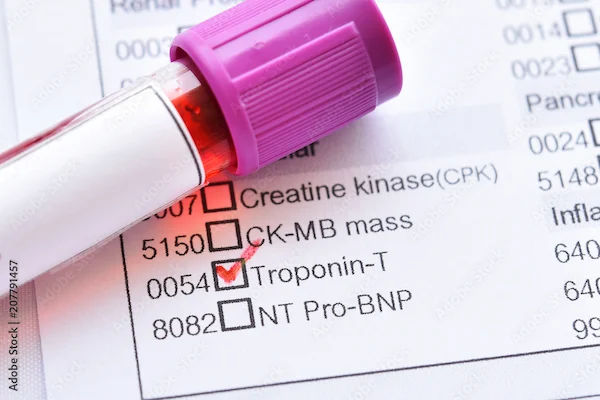- female
- 30 Years
- 20/02/2025
I'm having this issue where my heart seems to race and my hands go numb. It gets really intense, like my heartbeat skyrockets, especially at night. Last night it happened again, and it's not the first time it also occurred about 15 days ago. I got an ECG done, and while my heart rate was really fast, my blood pressure was normal. What's going on here? Why is this happening to me?
Answered by 1 Apollo Doctors
panic attack hua hai apko consult psychiatrist
Dr. Mubarak Suggests...
Consult a Cardiologist
Answered 04/07/2025
0
0


Ask Apollo
AI powered Health Chatbot
-
Possible Causes: a. Anxiety or panic attacks. b. Arrhythmias or other heart rhythm disorders. c. Hyperthyroidism or other metabolic issues.
-
Immediate Actions: a. Practice deep breathing or relaxation techniques. b. Avoid caffeine and stimulants.
-
Recommendations: a. Schedule a follow-up with a cardiologist. b. Consider a Holter monitor for continuous heart rate tracking. c. Discuss potential anxiety management strategies with a healthcare provider.
Recommended next steps
Consult a Cardiologist or Take a ONCO MONITOR 90+ GENES (LB & MRD) Test
Answered 10/09/2025
0
0
More Cardiology Health Queries
View allI'm a bit worried about getting an angiography since my creatinine level is at 1.6. Do you think there's any risk involved? Also, what steps can I take to lower my creatinine levels?
No ,oce the creatinine is normal only , angioram is to be done..
Answered by 1 Apollo Doctors
I'm dealing with mild pulmonary hypertension and I'm really worried about how it might affect my lifespan since I know there's no cure. Is it possible that the echocardiogram 2D test might have given inaccurate results?
The average survival rate is 1-5 years.
Answered by 1 Apollo Doctors
I've been experiencing chest pain on my right side after eating dinner. It's not constant, and I haven't had any other symptoms like sweating or pain in my armjust the chest pain. Should I be worried about this, or is it something that might go away on its own?
Right side chest pain after eating could potentially be related to gastrointestinal issues such as acid reflux or gastroesophageal reflux disease (GERD). It could also be due to gallbladder problems, especially if the pain is triggered by fatty meals. Considering your symptoms are not accompanied by sweating or arm pain, it is less likely to be cardiac in origin, but its still important to rule out other potential causes. I recommend trying some lifestyle and dietary changes, such as: - Avoiding large, heavy meals and opting for smaller, more frequent meals - Reducing the intake of fatty, spicy, or acidic foods - Not lying down immediately after eating If the pain persists or worsens, it would be wise to consult with a healthcare provider for further evaluation. They might suggest an upper endoscopy to check for GERD or an abdominal ultrasound to examine the gallbladder.
Answered by 1 Apollo Doctors
Disclaimer: Answers on Apollo 247 are not intended to replace your doctor advice. Always seek help of a professional doctor in case of an medical emergency or ailment.





